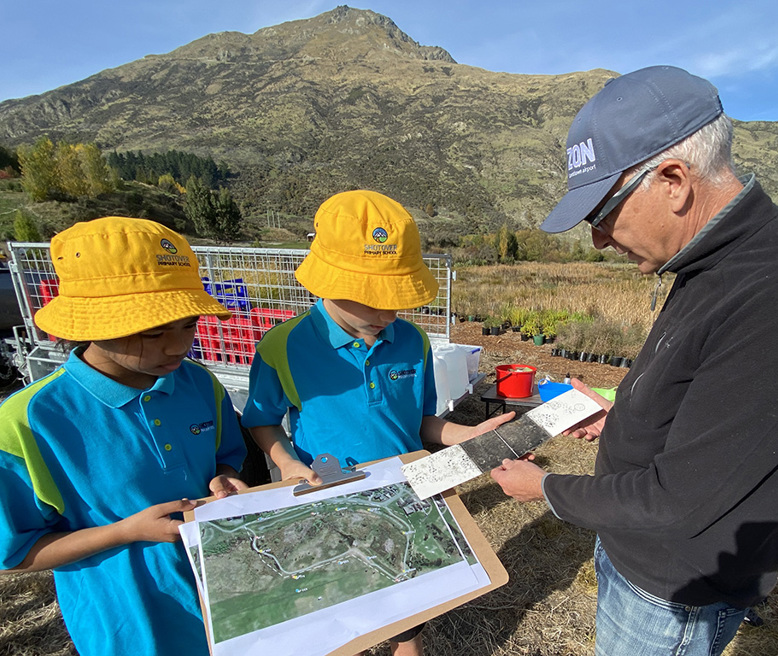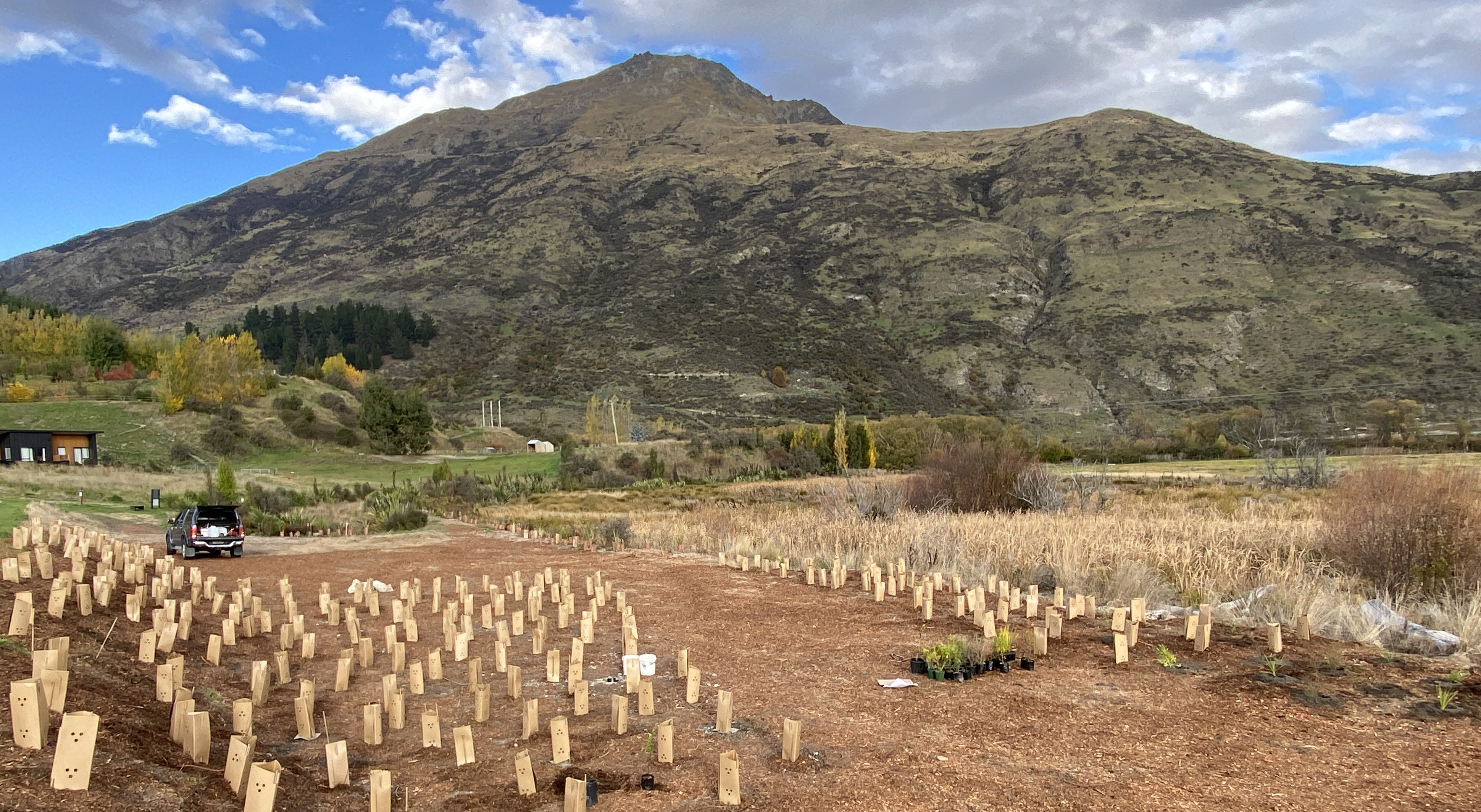
Queenstown Airport (ZQN) is the gateway to the Southern Lakes region of New Zealand, which is famous for its natural beauty.
We are, therefore, deeply conscious of the need to protect what makes this special place unique and investing in biodiversity is a key element of our Sustainability Strategy.
The airport has a longstanding relationship with the Whakatipu Reforestation Trust, which aims to restore the native biodiversity of the region through revegetation projects, collaboration, education, and advocacy.
In 2022, it expanded this partnership to support a community project of special significance to the airport – the restoration of the Shotover Wetland.
Wetlands are a crucial but often neglected part of our ecosystem, filtering toxins from water as it runs off land into rivers. Wetland plants also sequester carbon from the atmosphere and provide habitat for wildlife.
In the past 150 years, more than 90% of New Zealand’s wetlands have been destroyed. This makes the protection of remaining wetlands urgent.
The Shotover Wetland, east of the confluence of the Shotover and Kawarau rivers, is deemed regionally significant. Aircraft fly over it on approach to ZQN and many of our staff and customers live nearby in Shotover Country.
Covering nearly 7 hectares, the wetland is remarkable for the diversity of its native plants. More than 20 species have been recorded there – among them, Olearia lineata, a threatened species representative of the area's unique ecological and physical characteristics.
The wetland also provides a habitat for fish, invertebrates, and a range of birds, including pūkeko, shelducks, and swamp harriers.
The dual objectives of the project are the replanting and ecological enhancement of the wetland, and the provision of education opportunities for Shotover Primary School students, community members, and visitors. It incorporates the clearance of exotic vegetation, predator trapping, native plantings, water-quality testing, the creation and maintenance of recreational pathways, and a community engagement programme.
Queenstown Airport’s involvement has accelerated the project, with a target to fully restore the wetland within 10 years. It includes financial assistance, in-kind support, and paid volunteering sessions for each member of the airport company’s team.
Queenstown Airport has also launched a predator trapping programme to ensure that airport land near the wetland is predator-free. The traps are set and monitored by the Airport Emergency Services team.


